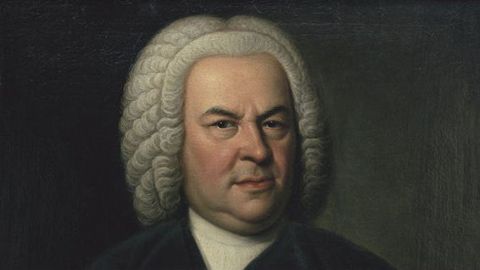The Spiritual and Secular Joy of Bach

If you want to stump an atheist, play the Bach card. If we were to do away with religion, you could ask, wouldn’t we be depriving ourselves of Bach? (One could similarly play the Dostoevsky card or the Michelangelo card.)
After all, isn’t the essence of Bach – the quality and intensity of feeling in his music – to be found in the way it carries the conviction of his faith? The answer is a complicated one, both for Bach and his listeners. Some of Bach’s most devoted secular admirers have confessed their divided feelings on this topic.
“Consciously, I am certainly an atheist,” wrote the Hungarian composer György Kurtág. But “if I look at Bach, I cannot be an atheist.”
The man who made atheism cool, Friedrich Nietzsche, wrote the following in a letter in 1870: “This week I heard the St. Matthew Passion three times and each time I had the same feeling of immeasurable admiration. One who has completely forgotten Christianity truly hears it here as gospel.”
It is the gospel according to Bach. As Glenn Gould once remarked “I believe in God — Bach’s God.”
So what exactly does Bach’s God represent? John Eliot Gardiner, author of the new book Bach: Music in the Castle of Heaven, offers this eloquent answer:
It would be invidious to insist that a person needs to hold Christian beliefs in order to appreciate Bach’s church music. Yet it is certainly the case that without some familiarity with the religious ideas with which it is imbued one can miss so many nuances, even the way his later music can be seen to act as a critique of Christian theology.
Indeed, if you disregard the original intentions of Bach, the composer, and the intentions of the church authorities who commissioned his music, you are missing the most subversive element of Bach—his independence of spirit, his humanism.
In the video below, Gardiner points out that Bach was certainly no “compliant servant of the clergy of the church.” Like Michelangelo’s or Dostoevsky’s introspective meditations on Christian themes, Bach’s music represents “his own views as to how the Christian doctrine appeals to him and also how he thinks it applies to his fellow man,” Gardiner says. In other words, Bach put his own spin on religious texts, which “begs the whole question of the relationship between music and text.”
We see in Bach how music can operate according to its own rules and even act “in counterpoint to the text it’s supposed to be elucidating.” Therefore, Gardiner says he finds in Bach “a sense of secular joy, secular ebullience and effusion” that “leaps over all the boundaries of nationality, of date, of period.”
Watch the video here:
Image courtesy of Shutterstock





